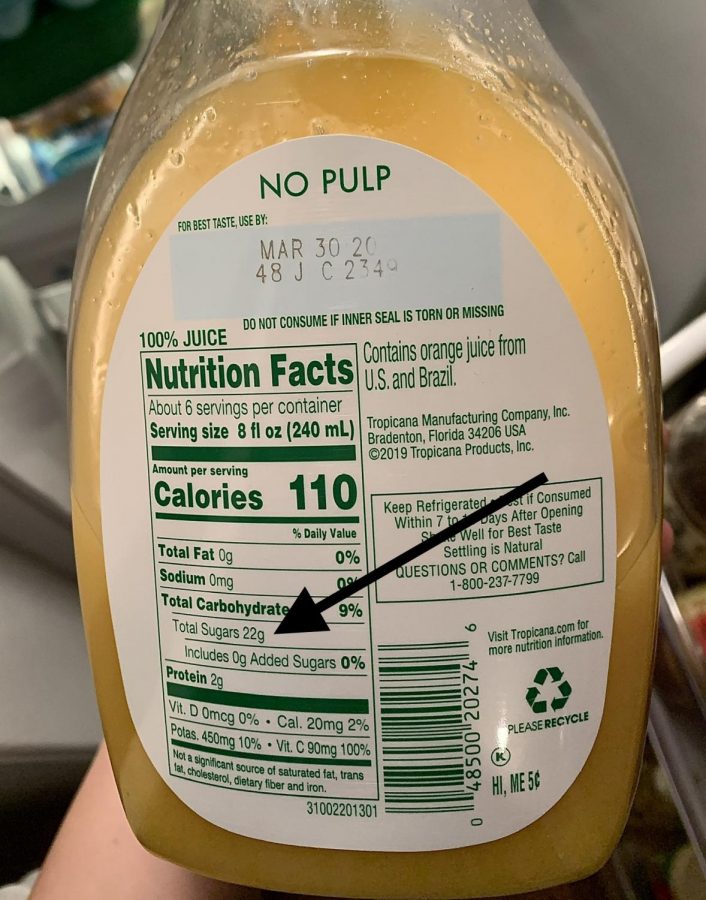Mythbusting Cold and Flu Season
An apple a day may not actually keep the doctor away during the winter months.
While orange juice is generally believed to be a good way to stay healthy. However, as seen above, the beverage has way more sugar than people think. The container shown has 22 grams of sugar, which is the equivalent of 1.5 tablespoons.
As everyone continues to trudge through the cold weather to get to work and school, the subject of cold and flu season starts rearing its head. Starting as early as October and lasting as long as May, the season of sickness pounces on countless people each year and often comes along with ideas of how to prevent it from affecting someone and those around them.
However, many of those ideas that have become common knowledge to the public do not hold as much weight as they are believed to. For example, it has been drilled into the heads of children that they should not go outside with wet hair because they will catch a cold. Although, according to Doctor Kenneth Steier to U.S. News, there is no scientific evidence that exists proving that going outside with wet hair in the cold will get a person sick.
Most of the myths surrounding cold and flu season come from ideas about what to eat to maintain one’s health. While the trademark of chicken noodle soup seems to ring true in reducing inflammation, other suggestions like drinking orange juice to consume enough Vitamin C do not hold as much truth as people think.
CDC Business Insider found that a 12 oz serving of orange juice has the same amount of sugar as a can of Sprite soda. This means that the alleged healthy drink can cause more harm than good in terms of a person’s health. While orange juice does provide a substantial amount of Vitamin C, the immense amount of sugar is more likely to weaken the immune system rather than contribute to curing a cold. In addition, juices generally have less fiber than the fruit they are made of, making them similar to soft drinks in terms of nutrition.
The University of Notre Dame’s campus dining webpage also investigated this myth, reporting that the average glass of orange juice can pack 80 mg of Vitamin C, providing more than the daily dose prescribed. However the sugar level of the beverage is so high that it should not be considered as armor against sickness. Instead, the site recommends to stick with regular fruits and other foods such as garlic, green peppers or other vegetables to give the immune system a boost.
Other cold and flu prevention methods focus on hygiene, such as frequently washing one’s hands or regularly changing bed sheets and pillow cases.
“I try to clean my sheets and pillowcases every week or so,” junior Elijah Ruano said. “When I was younger a teacher taught me that cleaning your sheets regularly gets rid of the dead skin cells and keeps the body in a clean environment.”
With the 2019-2020 flu season predicted to worsen according to the CDC, steps to maintain a person’s health are more and more crucial. Dressing appropriately for the cold temperatures, keeping the living space clean and learning which eating habits can defend against sickness, even if given minimal effort, can still make a difference in preventing a person from falling victim to the season of sickness.


